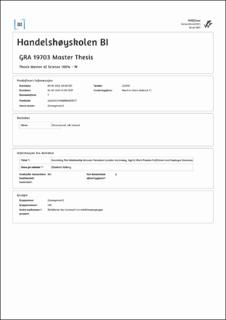| dc.description.abstract | This study explored the influence of Perceived Location Autonomy (PLA) and Hybrid Work Promise Fulfillment (HWPF) on employee outcomes in a Norwegian municipality organization. Utilizing a survey-based quantitative approach, 98 responses were collected from Bymiljøetaten employees involved in hybrid work arrangements. Despite revealing weak-to-moderate significant relationships between PLA and aspects such as Employee Well-Being, Organizational Citizenship Behavior, and Work Efficiency, PLA did not correlate significantly with Turnover Intentions or HWPF. Furthermore, HWPF showed no significant correlation with any employee outcomes, challenging its mediating role between PLA and these outcomes. These findings suggest that organizations need to adopt a comprehensive approach to managing hybrid work arrangements beyond merely allowing location autonomy. Future research could benefit from exploring these relationships longitudinally, across different contexts, and through qualitative methodologies. Additional moderating variables, such as personality traits and other organizational factors, and other employee and organizational outcomes could be investigated to provide a more comprehensive understanding of PLA and HWPF's role in hybrid work environments. | en_US |
